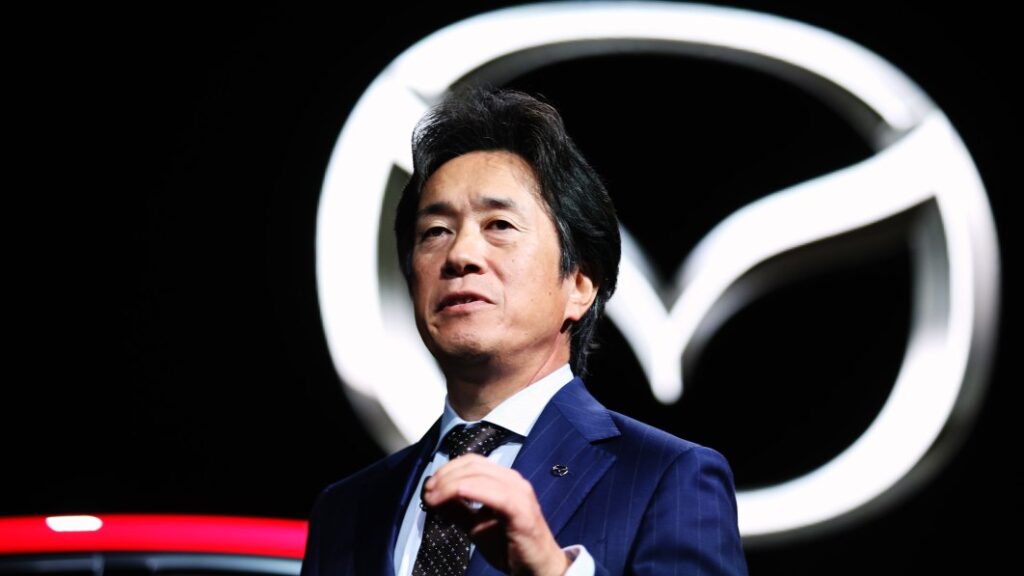Mazda to appoint former North America head Moro as next CEO

TOKYO – Mazda will appoint 40-year company veteran Masahiro Moro as its new president and CEO, the Japanese automaker said on Friday, as it ramps up spending to electrify its vehicles and considers investing in battery production.
Moro, 62, currently a director and senior managing executive officer, had previously served as the head of the automaker’s North America operations. He will officially take over pending the approval of the shareholders and board in June, the company said.
Current president and CEO Akira Marumoto, who took up his role in 2018, will step down from his posts at that time, Mazda added. Marumoto would continue to serve as an adviser, the Nikkei newspaper reported separately on Friday.
The leadership shake-up comes as the company, which is 5.1%-owned by automotive giant Toyota Motor Corp, laid out a 1.5 trillion yen ($11.28 billion) spending plan in November to increase electrification of vehicles.
“Our business in the United States is currently growing very strongly,” Moro said during a news conference in Mazda’s home base of Hiroshima, as he pledged to work out the automaker’s mid-term strategy in detail.
Moro said he hoped Mazda will expand its U.S. business by upgrading dealer stores, which number around 360, and have each of those stores sell 1,000 vehicles a year initially. “If that can be done, next would be to work to 1,200 units,” he said.
Mazda also nominated Jeff Guyton, 56, senior managing executive officer and its current North America head, as chief financial officer and assistant to the president pending the June approval of the shareholders and board.
The company has sought to strengthen its position in the U.S. market with Toyota’s help, making Mazda CX-50 crossovers at a plant it built in Huntsville, Alabama, with its much larger compatriot.
Mazda, which saw global annual sales of 1.25 million vehicles in the financial year to end-March 2022, is facing growing competition in the U.S. and China, as well as fallout from the global chips shortage.
The company forecast last month that it would sell 6% fewer cars in the United States and 48% fewer in China in the current financial year, setbacks that would be partly offset by higher expected sales in Japan.
($1 = 132.9600 yen)
(Reporting by Daniel Leussink; Editing by Kim Coghill and Jamie Freed)



